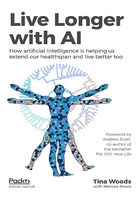
The move from global to local
Azhar predicts that national governments will increasingly insist on adhering to local laws and standards. Indeed, "localism" seems to be in vogue. For example, India is insisting that critical data relating to its businesses and citizens reside within India[44]. In the UK, there are interesting local initiatives being developed through the Connected Health Cities program, which uses a data sharing "consent wireframe" devised and overseen by local citizens, who decide how their data might be shared for anonymized, pseudonymized, and identifiable purposes. The level of transparency enabled through an audit feedback loop (which confirms when personal data was used and what it was used for) has been central to developing and maintaining trust in the system.
Will such examples of "localism" swing the pendulum away from "globalism"? Could we ever create global open standards? Would nations adhere to them?
These are important questions as nations build their capabilities in data and AI to solve the world's problems.
The experience of COVID-19 has also thrown up big questions on state authoritarianism versus citizen empowerment—and privacy is a big concern for many. But the issue at the heart of everything is trust—people need to trust science, business, the government, and the media. People need to trust those institutions that hold such power and influence over their lives.
Taiwan's response to the pandemic is a shining example of how tech can build trust, accountability, and democracy by harnessing citizen action[45]. In the earliest stages of the crisis, a month before the World Health Organization (WHO) declared COVID-19 a global pandemic, Howard Wu, a clever "citizen coder," developed a crowdsourcing app using Google Maps where people could input stocks of masks in pharmacies to help people find them. As the app went viral, an equally clever government digital minister, Audrey Tang, spotted the opportunity to extend the availability of masks by distributing them through pharmacies affiliated with Taiwan's National Health Insurance (NIH) system, keeping track of them in real time. Tang then created an open-source portal for mask data to be open to the general public and invited other tech activists, in addition to Wu, to contribute too. Taiwan's collectivist approach to dealing with the pandemic is being recognized globally as a leading exemplar showing what open data, open governance, and collaboration between citizens and government can achieve.